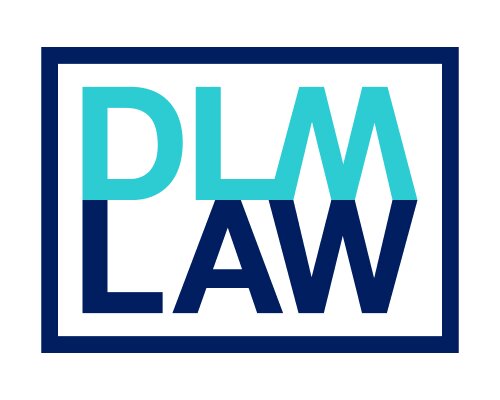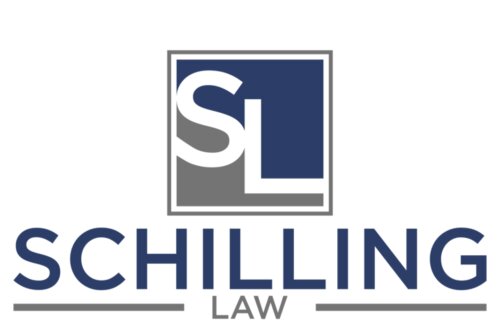Best Restructuring & Insolvency Lawyers in Kansas City
Share your needs with us, get contacted by law firms.
Free. Takes 2 min.
List of the best lawyers in Kansas City, United States
About Restructuring & Insolvency Law in Kansas City, United States
Restructuring and insolvency law in Kansas City addresses the legal processes businesses and individuals must follow when facing financial distress. Kansas City spans both the state of Missouri and Kansas, housing a wide range of businesses from large corporations to family-run enterprises. When companies or individuals are unable to meet their financial obligations, restructuring and insolvency laws help ensure fair solutions for debtors and creditors. These laws guide processes such as bankruptcy filings, out-of-court restructurings, debt negotiations, liquidations, and reorganizations. The aim is to either give the debtor a fresh financial start or maximize recoveries for creditors, depending on the specific circumstance.
Why You May Need a Lawyer
Legal complications surrounding restructuring and insolvency can be complex and have lasting impacts on your finances or your business. Here are common situations in which someone may require legal assistance:
- Your business is facing overwhelming debt or declining revenue.
- Creditors are pursuing aggressive collection actions, including lawsuits or liens.
- You are considering filing for bankruptcy but are unsure which chapter is appropriate.
- You need to negotiate new terms with creditors to avoid bankruptcy.
- You want to restructure obligations to continue business operations while satisfying creditors.
- You are unsure of your rights in an insolvency situation, either as a debtor or a creditor.
- You need protection from asset seizure or wage garnishment.
- You have received a notice of foreclosure on your business or personal assets.
- You are a creditor seeking repayment from an insolvent debtor.
A lawyer can help you understand your options, protect your legal rights, and guide you through negotiations, court filings, and compliant procedures.
Local Laws Overview
Kansas City’s legal environment for restructuring and insolvency is shaped by federal bankruptcy laws and state-specific regulations in both Missouri and Kansas. Here are key elements that are particularly relevant:
- Federal Bankruptcy Code: Bankruptcy cases are filed in federal court, typically under Chapters 7, 11, or 13. Chapter 7 involves liquidation of assets, Chapter 11 allows business reorganization, and Chapter 13 focuses on debt repayment plans for individuals.
- State Exemption Laws: Both Missouri and Kansas have their own lists of exempt assets that cannot be seized in bankruptcy. Knowing which state’s exemptions apply is crucial and may depend on your residence history.
- Business Entity Laws: Local statutes governing corporations, LLCs, and partnerships impact how restructuring procedures are conducted.
- Judicial Process: Kansas City is served by federal bankruptcy courts in the Western District of Missouri and the District of Kansas. Local rules and procedures may vary between these jurisdictions.
- Homestead Protections: Missouri and Kansas both offer homestead exemptions, but the amounts and requirements are different and may influence decisions about filing for bankruptcy.
- Foreclosure Rules: Missouri uses a nonjudicial process for most mortgage foreclosures, while Kansas generally uses a judicial process. These differences can affect restructuring options for homeowners.
Frequently Asked Questions
What is the difference between bankruptcy and restructuring?
Bankruptcy is a legal process that results in either liquidation of assets or repayment plans under court supervision. Restructuring is a broader term encompassing any attempt to reorganize finances, which can be done within or outside of bankruptcy court.
What bankruptcy chapter is right for me?
Individuals generally file under Chapter 7 (liquidation) or Chapter 13 (repayment plan), while businesses often use Chapter 7 or Chapter 11 (reorganization). The best option depends on your assets, debts, income, and goals. A lawyer can help you make the right choice.
Can I keep my house or car if I file for bankruptcy in Kansas City?
Usually, state or federal exemption laws protect some equity in your home or car. The specifics depend on which state exemptions apply to your case and the value of your assets.
Will bankruptcy stop creditors from contacting me?
Yes, filing for bankruptcy triggers an automatic stay, which immediately stops most collection efforts, lawsuits, wage garnishments, and calls from creditors.
How long does bankruptcy stay on my credit report?
A Chapter 7 bankruptcy generally remains on your credit report for ten years, while Chapter 13 bankruptcies stay for seven years.
Can my business continue to operate during restructuring?
Yes, under Chapter 11 and some out-of-court restructurings, businesses can keep operating while negotiations or court processes are ongoing, subject to certain restrictions and approval from creditors or the court.
Do I need to go to court if I want to restructure my debts?
Not always. Many restructurings are negotiated out of court between debtors and creditors. However, bankruptcy or certain types of debt modifications require court filings.
How are creditors paid in a bankruptcy proceeding?
Distribution depends on the type of bankruptcy and the debtor's assets. Secured creditors are paid first from collateral, followed by unsecured creditors from remaining assets, according to a priority system.
Can bankruptcy discharge all my debts?
No, not all debts can be discharged. Common exceptions include student loans, some tax debts, child support, and debts incurred through fraud.
How do exemptions work in Missouri and Kansas bankruptcies?
Each state has specific laws identifying assets you can keep during bankruptcy. Missouri and Kansas exemptions differ, especially regarding real estate, vehicles, jewelry, and retirement accounts. Which state exemptions apply depends on your residency history prior to filing.
Additional Resources
If you are seeking guidance or support, the following resources may be helpful:
- U.S. Bankruptcy Court for the Western District of Missouri: Handles federal bankruptcy cases for Kansas City, Missouri.
- U.S. Bankruptcy Court for the District of Kansas: Handles federal bankruptcy cases for Kansas City, Kansas.
- Legal Aid of Western Missouri: Provides free legal assistance for qualifying low-income individuals facing financial distress.
- Kansas Legal Services: Offers resources and legal assistance for people in Kansas.
- Missouri Bar and Kansas Bar Associations: Provide lawyer referral services and information about consumer protection and bankruptcy.
- Small Business Administration (SBA): Offers counseling, resources, and local contacts for small businesses in crisis.
- Consumer Financial Protection Bureau: Educational materials on dealing with debt and managing financial distress.
Next Steps
If you are experiencing financial trouble or anticipate difficulties in meeting your obligations, taking early action is crucial. Here are recommended next steps:
- Gather all financial documents, including debts, assets, income statements, and any communications from creditors.
- Identify any urgent legal actions, such as lawsuits or foreclosure notices.
- Consider scheduling a consultation with a qualified restructuring and insolvency attorney in Kansas City. Many offer initial consultations, sometimes for free or at a reduced cost.
- Write down your financial and business objectives to discuss with your lawyer.
- Research local resources to understand your options and prepare questions in advance for your attorney.
- Avoid making large asset transfers or taking on more debt without first obtaining legal advice.
A knowledgeable lawyer can help you evaluate your situation, explain your legal options under Kansas City’s laws, and create a strategy to protect your interests and achieve the best possible outcome during restructuring or insolvency.
Lawzana helps you find the best lawyers and law firms in Kansas City through a curated and pre-screened list of qualified legal professionals. Our platform offers rankings and detailed profiles of attorneys and law firms, allowing you to compare based on practice areas, including Restructuring & Insolvency, experience, and client feedback.
Each profile includes a description of the firm's areas of practice, client reviews, team members and partners, year of establishment, spoken languages, office locations, contact information, social media presence, and any published articles or resources. Most firms on our platform speak English and are experienced in both local and international legal matters.
Get a quote from top-rated law firms in Kansas City, United States — quickly, securely, and without unnecessary hassle.
Disclaimer:
The information provided on this page is for general informational purposes only and does not constitute legal advice. While we strive to ensure the accuracy and relevance of the content, legal information may change over time, and interpretations of the law can vary. You should always consult with a qualified legal professional for advice specific to your situation.
We disclaim all liability for actions taken or not taken based on the content of this page. If you believe any information is incorrect or outdated, please contact us, and we will review and update it where appropriate.











